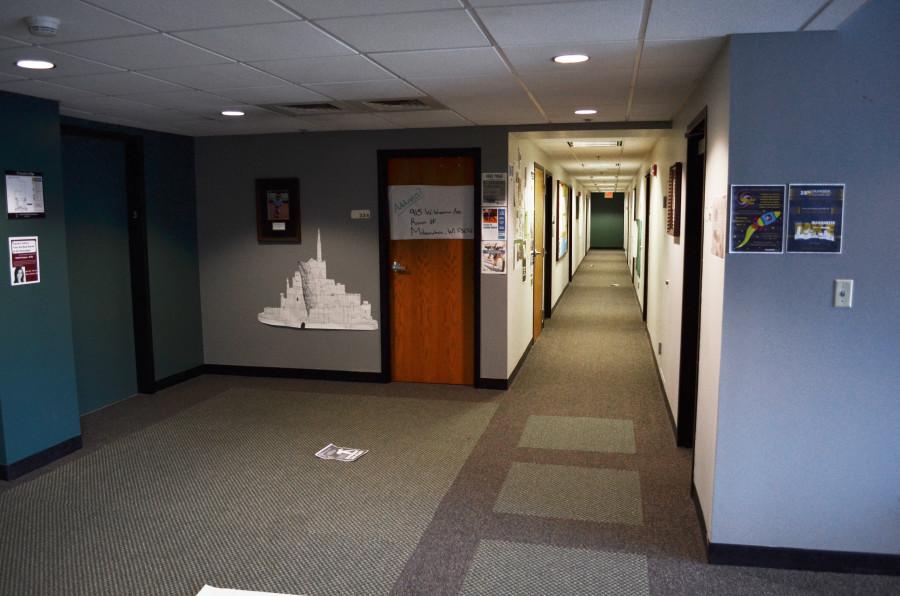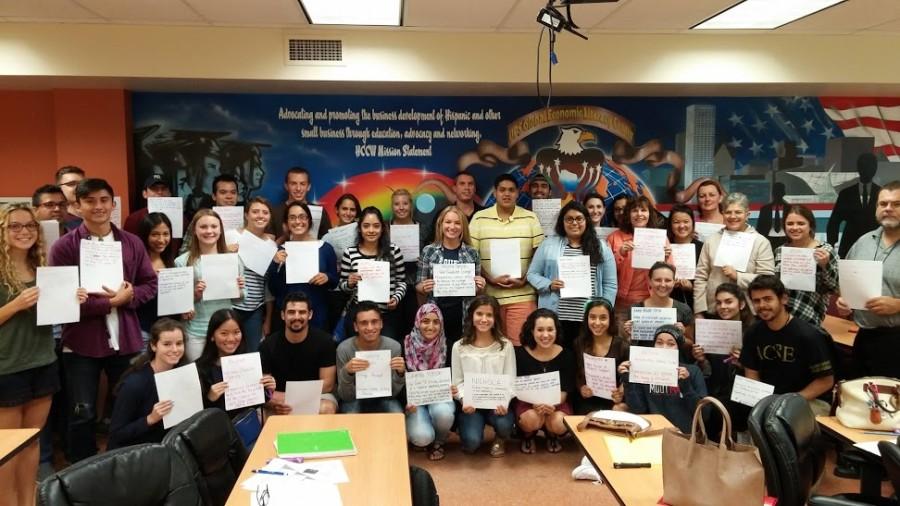Every Monday evening, Michelle Frederick, a sophomore in the College of Business Administration, boards a Milwaukee County bus and travels to the south side of Milwaukee to the Hispanic Chamber of Commerce.
Here, she volunteers with several other Marquette students tutoring Latin American immigrants on how to adjust to the culture of the U.S. in a program called Empowering Latinos.
Frederick and other volunteers work one-on-one with the participants, who are a wide range of ages. Some of them have been in the U.S. for years, others just months and still trying to learn English, but Frederick said she learns more from her students than they learn from her.
Frederick and her colleagues became involved with Empowering Latinos through the Marquette’s Service Learning Program. Since 1994, service learning has coordinated community-based learning experiences for Marquette students. The director of the program, Kimberly Jensen-Bohat, said about 65 classes at Marquette require students to participate in some type of community service. She said more than 1,000 students participate. While in the program, students volunteer at homeless shelters, domestic violence shelters, AIDS resource centers and tutoring centers among others.
“It creates a bond,” Frederick said. “A lot of times we are known for being in the Marquette bubble and what service learning does is it gets us out in the community. It bursts the bubble. It creates a community atmosphere that we are Marquette, but we are also Milwaukee.”
Jenson-Bohat said the Service Learning Program is an opportunity for students to learn how to act professionally. She compared it to an internship because the experience is something students “can’t get from the books.”
“You learn more by doing,” Jenson-Bohat said. “The students can see and observe learning in a more urban setting. We are meeting real community needs. It’s a win-win for both students and the programs we serve.”
Real Progress
At Empowering Latinos, Erica Steele, the director of Latin Empowerment, was a service learning volunteer while studying at the University of Wisconsin–Madison. She called the Service Learning Program a reciprocal relationship where students build a relationship with the community.
“English is a really powerful tool for these individuals, and the volunteers get to help them see real progress,” Steele said. “Because of the volunteers, participants pass their citizenship test, open a business or enroll in classes at MATC.”
Julio Gomez has taken classesat Empowering Latinos for several months. He called the volunteers “the best.” Gomez took classes at MATC, but didn’t like learning English in a class of more than 20 students. He enjoys the individuality at Empowering Latinos, and appreciates the one-on-one relationship between volunteers and participants. When he arrived at Empowering Latinos he didn’t know how to write English, now he can.
“I can’t find the words to explain how special the volunteers are,” Gomez said. “They do it for free, they are the best. When I go home, I can’t wait to come back. We do a lot of different activities, there is a lot of joking and talking.”
Different Areas
There is more to service learning than just going out into the community. Service learning consists of five different models: the placement model, presentation model, presentation-plus model, product model and the project model. The presentation model allows students to take what they learn in class and present it to audiences in the community. The presentation-plus model has students hold workshops, or mini-conferences. The product model requires a student to work alone or in groups to produce a tangible product for the agency they are working for and the project model has service learners collaborating with community members to devise and implement a project.
Frederick works on the placement model. She is a part of the Dorothy Day Social Justice Living and Learning Community on the fourth floor of Straz Hall. Dorothy Day members complete three hours of service learning each week while taking the Philosophy of Human Nature course in the fall and the Theory of Ethics course in the spring.
“Even if you don’t necessarily want to do service in the future, it is a huge thing to be involved in the community that you live in,” Frederick said. “That is what service learning does an amazing job for. I know for me it has made me actually realize that I’m part of the Milwaukee community and not just Marquette’s.”



